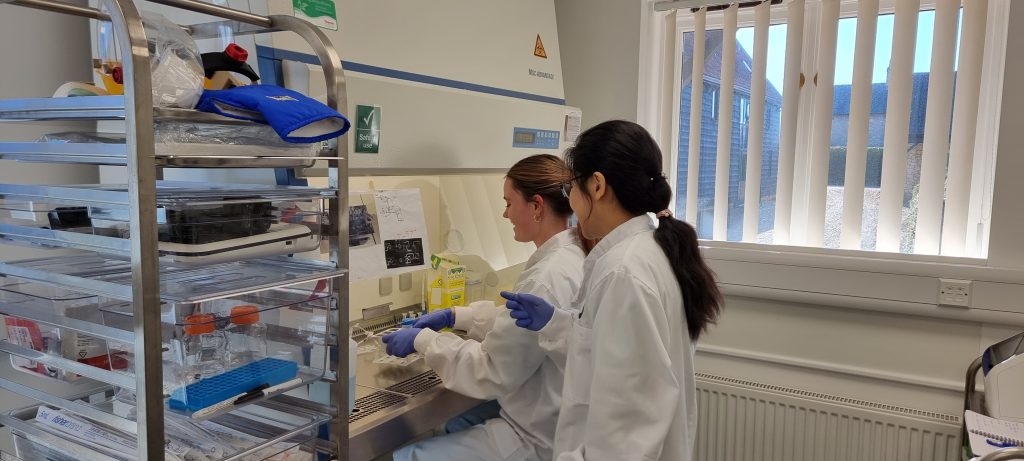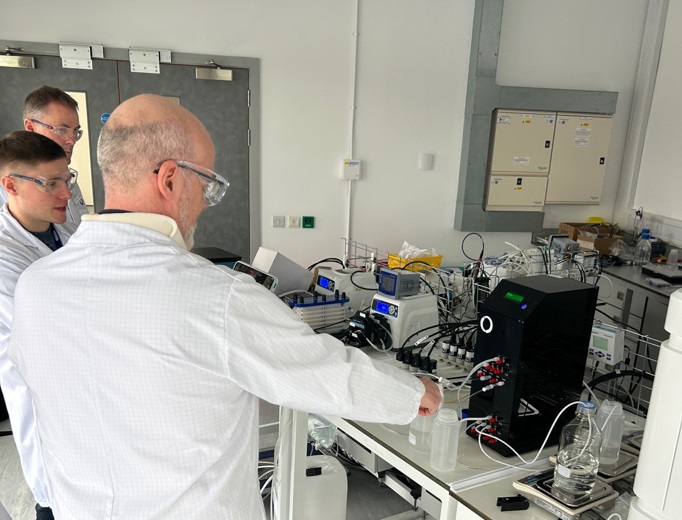BiologIC Technologies, the UK based biotechnology company behind the 3D printed ‘lab-on-a-chip’ platform, has received funding from Innovate UK. This financial support has allowed the company to accelerate the development and manufacture of cheaper drugs and vaccines.
Analysis for Innovators (A4I), a grant funding programme run by Innovate UK, has enabled BiologIC to access the expertise and specialist equipment of the National Measurement Laboratory (NML). Thanks to this funding, the cambridge-based company has reportedly made a huge leap in its understanding of how the plastics in its 3D printed chips interact with biological applications.
“Without access to the high-end analytics, and, more critically, the world class expertise at NML made possible through the A4I funding, it would likely have taken us several years to achieve the same insights,” commented Dr Colin Barker, Chief Scientific Officer at BiologIC Technologies.
“We’ve already taken the learning we’ve gained from the grant and applied it in real time. We have several active projects, where we have directly applied our new knowledge to improve customer outcomes. This grant directly led to an increase in our understanding, which has had an immediate impact, and greater commercial success.”

3D printed ‘lab-on-a-chip’
BiologIC’s ‘lab-on-a-chip’ is a miniaturized electrical device which integrates numerous laboratory functions onto a single chip. These chips allow for fast, efficient, and cost-effective analysis of biological samples. Applications of this technology are broad, ranging from drug testing to point-of-care diagnostics.
According to BiologIC, 3D printed materials, without post-processing, don’t support reproducible biology. In order to develop high quality biological products, the company had to first understand the chemical interactions between 3D printed materials and biological samples. However, prior to receiving the A4I funding, the company did not possess the funds or expertise to investigate these interactions.
“By the nature of them being 3D printable materials, they’re very reactive,” explains Barker. “And so, part of Biologic’s proprietary know-how is how to take those materials and treat them to make them biocompatible. But that’s a very complex, very slow process.”
Thanks to this recent funding, and the NML access this enables, BiologIC can now demonstrate greater biocompatibility and stability of its ‘lab-on-a-chip.’ As such, it is claimed that pharmaceutical manufacturers and Contract, Design and Manufacturing Organisations (CDMOs) can now accelerate the work needed to develop minimum viable products. This will lead to cheaper drugs and vaccines, and faster time-to-market.
Manufacturing on Demand
BiologIC’s ‘lab-on-a-chip’ platform is already said to be creating value for advanced developers at customer sites. Indeed, the BiologIC team is said to work closely with customers to create custom ‘lab-on-a-chip’ configurations. Here, the company can address specific customer challenges, including increasing yield, process robustness and scale.
“The transformation of BiologIC is yet another success story generated by A4I,” claims Simon Yarwood Knowledge Transfer Manager – Industrial Technologies, A4I at Innovate UK KTN.
“It is an effective demonstration of how we empower companies to boost their productivity and their competitiveness by solving difficult technical analysis-type problems that maybe they’ve been battling with for some time.”

Drug development in additive manufacturing
Drug development and testing is a growing area within additive manufacturing. Scientists from the Max Planck Institute for Informatics in Saarbrücken, Germany, and the University of California at Davis, recently developed a new process for 3D printing pills. This novel process allows pharmaceutical drugs to be released at fixed speeds, determined by the pill’s shape.
“I am convinced that point of care, personalized medicine is around the corner, and 3D printing will play a major role,” commented Dr Vahid Babaei, Research Group Leader, Artificial Intelligence-Aided Design and Manufacturing Group, at Max Planck Institute for Informatics.
Last year 3D systems announced the formation of a new 3D bioprinting subsidiary, called Systemic Bio, to develop a novel drug discovery tool. This tool leverages technologies developed as part of 3D Systems’ Print to Perfusion program, as well as those of its other subsidiary Allevi.
These technologies are used to 3D bioprint vascularized organ models from human cells. The resulting tissue is marketed as a pharmaceutical drug discovery tool, the cells having proven capable of accurately simulating human immune responses.
You might also like:
Cardiff University researchers develop Lego 3D bioprinter for human-skin production: Led by Dr Christopher Thomas, Dr Oliver Castell and Dr Sion Coulman from Cardiff’s School of Pharmacy and Pharmaceutical Sciences, the project seeks to make 3D bioprinting more affordable and accessible.
* This article is reprinted from 3D Printing Industry. If you are involved in infringement, please contact us to delete it.
Author: Alex Tyrer-Jones

Leave A Comment